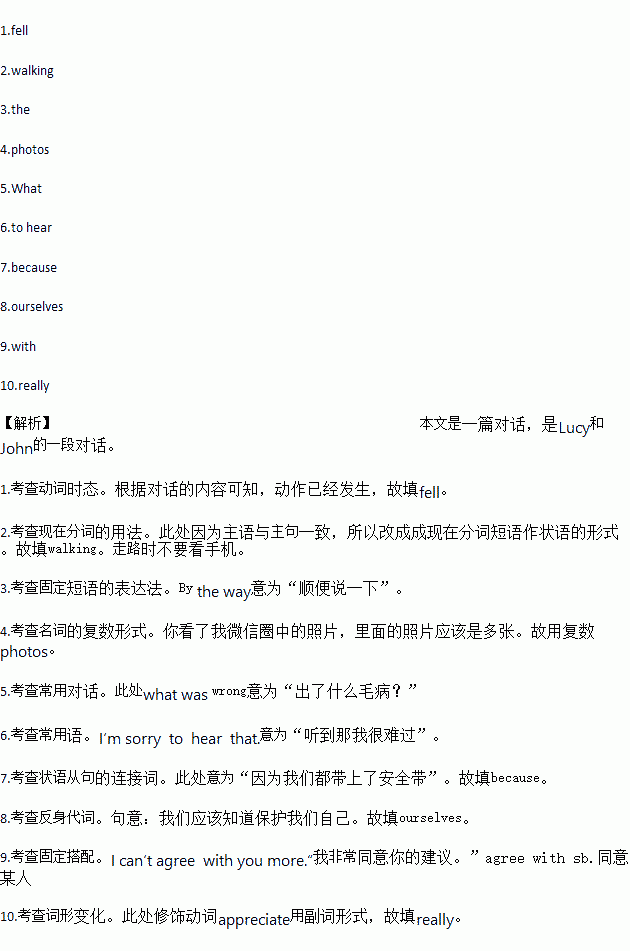题目内容
Lucy: Oh, Jim! Be careful! You almost 1.(fall) down. Are you all right?
John: Don’t worry. I’m OK.
Lucy: You’d better not look at your phone while 2.(walk).
John: OK, I won’t.
Lucy: By 3. way, you didn’t look very happy on the WeChat yesterday.
John: Haha, you saw my 4.(photo) in the friend circle!
Lucy: Yeah. I’m used to looking through it every day. I found your car was broken.
5.was wrong?
John: There was nothing serious. Just a little traffic accident.
Lucy: I’m sorry 6.(hear) that. Was anybody hurt?
John: No one, 7.we wore the seat belts.
Lucy: Well done! We should know how to protect 8.(we).
John: I can’t agree 9. you more. Safety rules are really worth learning.
Lucy: But you still need a rest. Take good care of yourself. Bye.
John: I 10.(real) appreciate your care. Bye-bye.

